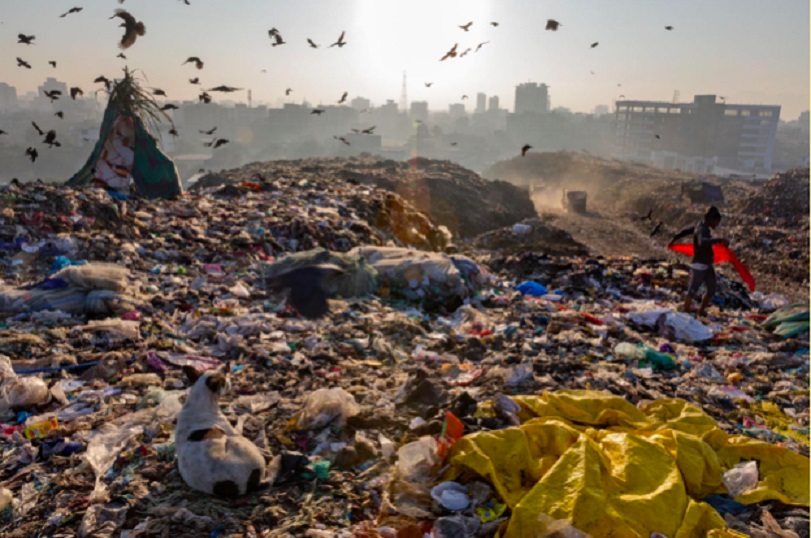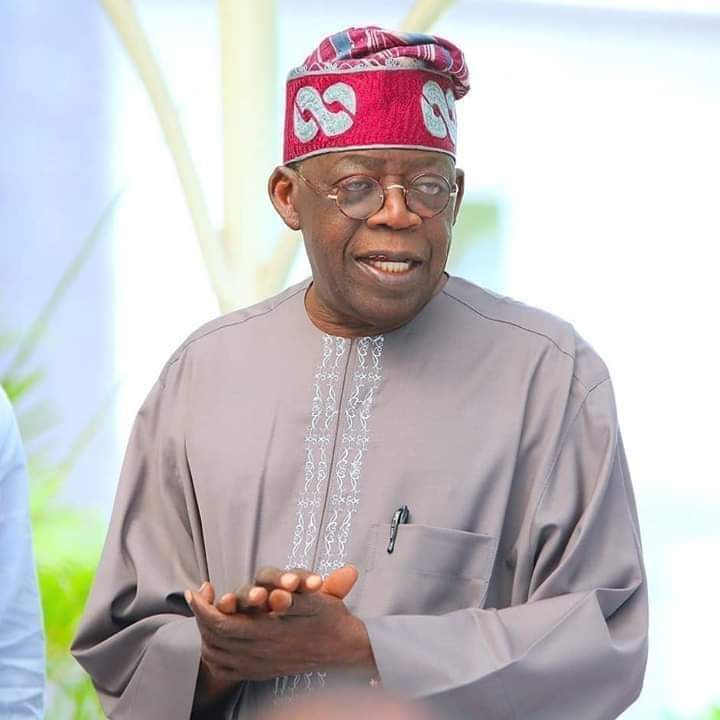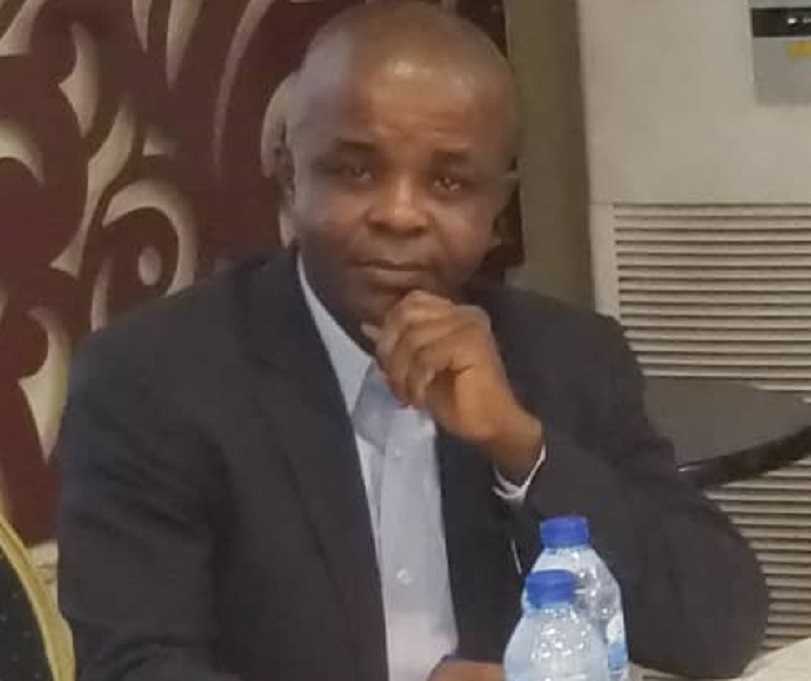Feature/OPED
Why Environmental Injustice Flourishes In Nigeria

By Jerome-Mario Utomi
Recently, precisely on Tuesday, November 21, 2023, I participated as a panellist at the Institute for Housing and Urban Development Studies (IHS), Erasmus University, Rotterdam, Netherlands, a panel discussion on The role of multi-stakeholder engagement in achieving environmental justice.
The gathering, which was held in Victoria Island, Lagos, formed part of training on Environmental Justice: Reducing Ecological and Social Inequalities through Effective and Participatory Land Governance.
Essentially, in my private study/preparation for the programme, the need to domesticate the subject became paramount to me. To achieve this objective; the following questions came flooding; what is environmental justice? Are there traces or evidence that it exists in any part of Nigeria? In what form or shape? Who are the people responsible? Who are the most impacted? What is the politics that kept it going? How can we creatively achieve effective development, implementation and enforcement of environmental laws, regulations, and policies without discrimination against the have-nots and vulnerable peoples? What strategy and tactics can policy and decision-makers at both Federal and state levels adopt to get the people directly involved in the decision-making process that affects their environment?
Providing answers to the above questions, beginning with the first, from what experts are saying, environmental justice is a crusade that advocates fair treatment and meaningful involvement of all people, regardless of race, colour, national origin, or income, with respect to the development, implementation and enforcement of environmental laws, regulations, and policies.
Viewed broadly, environmental justice, according to the world information search engine, Wikipedia, is a social movement to address environmental injustice, which occurs when poor or marginalized communities are harmed by hazardous waste, resource extraction, and other land uses from which they do not benefit. The movement has generated hundreds of studies showing that exposure to environmental harm is inequitably distributed.
Historically, the movement began in the United States in the 1980s. It was heavily influenced by the American civil rights movement and focused on environmental racism within rich countries. The movement was later expanded to consider gender, international environmental injustice, and inequalities within marginalised groups.
The global environmental justice movement arises from local environmental conflicts in which environmental defenders frequently confront multinational corporations in resource extraction or other industries. Local outcomes of these conflicts are increasingly influenced by transnational environmental justice networks.
Undoubtedly, when the above definition/explanation is juxtaposed with the ongoing degradation in the country in the name of development, it becomes glaringly obvious that environmental injustice exists here in Nigeria and remains a sin that all must share in its guilt. But if this injustice which daily and harmfully impacts the poor and other vulnerable Nigerians is a challenge in other parts of the country, what is happening in the Niger Delta region, South-South Geopolitical zone is a crisis.
It is a brazen unfairness planted by the government and signposted in areas such as; a parade of multiple but obsolete environmental laws, poor enforcement habits and brazen lack of capacity to see through to programme monitoring and evaluation, discrepancy in application and implementation of environmental, policies, programmes and initiatives.
This environmental ill is further accelerated by corporate organizations’ particularly the International Oil Companies (IOCs) noncompliance with international best practices in their day-to-day quest for profit maximization through crude oil exploration and production in the Niger Delta region and compounded by their erroneous understanding of call for Corporate Social Responsibility (CSR) as a dangerous fiction targeted at hand twisting the rich and mighty.
Out of many such examples, this piece will highlight evidence of incapacity to enforce compliance with environmental regulations and demands.
Fundamentally, many Nigerians with critical interest had hitherto believed that the advent of Nigeria’s Petroleum Industry Act (PIA) 2021, which was signed into law in the aforementioned years, and arguably the most audacious attempt to overhaul the petroleum sector in Nigeria, will solve the real and imagined challenges in the nation’s petroleum sector, and turn Niger delta region, particularly host communities to a zone of peace in their relationship with Crude Oil prospecting and exploration companies.
But today, facts have since emerged that instead of providing the legal, governance, regulatory and fiscal framework for the Nigerian Petroleum Industry and the host communities, the Petroleum Industry Act (Act), has contrary to expectation become a first line of conflict between crude oil prospecting, exploration companies and their host communities. Like other Acts that guided crude oil production in the past, PIA has similarly become a toothless bulldog that neither bites nor barks. In fact, analysts and industry watchers have come to a sudden realization that nothing has changed.
A tour by boat of creeks and coastal communities of Warri South West and Warri North Local Government Areas of Delta state will amply reveal that the much-anticipated end in sight of gas flaring is actually not in sight. In the same manner, a journey by road from Warri via Eku-Abraka to Agbor, and another road trip from Warri through Ughelli down to Ogwuashi Ukwu in Aniocha Local Government of the state, shows an environment where people cannot properly breathe as it is littered by gas flaring points.
To a large extent, the above confirms as true the recently published report which among other concerns noted that Nigeria has about 139 gas flare locations spread across the Niger Delta both in onshore and offshore oil fields where gas which constitutes about 11 per cent of the total gas produced are flared. Apart from the health implications of flared gases on humanity, its adverse impact on the nation’s economy is equally weighty.
Banking on what experts are saying, the major reason for the flaring of gases is that when crude oil is extracted from onshore and offshore oil wells, it brings with it raw natural gas to the surface where natural gas transportation, pipelines, and infrastructure are lacking, like in the case of Nigeria, this gas is instead burned off or flared as a waste product as this is the cheapest option. This has been going on since the 1950s when crude oil was first discovered in commercial quantities in Nigeria.
While Nigeria and Nigerians persist in encountering gas flaring in the country, even so, has successive administrations in the country made both feeble and deformed attempts to get it arrested.
The facts are there and speak for it.
In 2016, President Muhammadu Buhari-led administration enacted Gas Flare Prohibition and Punishment), an act that among other things made provisions to prohibit gas flaring in any oil and gas production operation, blocks, fields, onshore or offshore, and gas facility treatment plants in Nigeria.
On Monday, September 2, 2018, Dr Ibe Kachikwu, Minister of State for Petroleum (as he then was) while speaking at the Buyers’ Forum/stakeholders’ Engagement organized by the Gas Aggregation Company of Nigeria in Abuja among other things remarked thus; ‘I have said to the Department of Petroleum Resources, beginning from next year (2019 emphasis added), we are going to get quite frantic about this (ending gas flaring in Nigeria) and companies that cannot meet with extended periods –the issue is not how much you can pay in terms of fines for gas flaring, the issue is that you would not produce. We need to begin to look at the foreclosing of licenses’.
The threat has since ended in the frames as the Minister did little or nothing to get the threat actualized.
The administration also launched the now abandoned National Gas Flare Commercialization Programme (NGFCP, a programme, according to the Federal Government aimed at achieving the flares-out agenda/zero routine gas flaring in Nigeria by 2020.
Again, like a regular trademark, it failed.
Away from Buhari’s administration, in 1979, the then Federal Government in a similar style came up with the Associated Gas Re-injection Act which summarily prohibited gas flaring and also fixed the flare-out deadline for January 1, 1984. It failed in line with the leadership philosophy in the country.
Similar feeble and deformed attempts were made in 2003, 2006, and 2008.
In the same style and span, precisely on July 2, 2009, the Nigerian Senate passed a Gas Flaring (Prohibition and Punishment) Bill 2009 (SB 126) into Law fixing the flare-out deadline for December 31, 2010- a date that slowly but inevitably failed. Not stopping at this point, the FG made another attempt in this direction by coming up with the Petroleum Industry Bill which fixed the flare-out deadline for 2012. The same Petroleum Industry Bill (PIB) was protracted till 2021 when it completed its gestation and was subsequently signed into law by President Buhari, as the Petroleum Industry Act (PIA).
Despite this vicious movement to save the environment and its people, the Niger Delta challenge remains. So the question that is as important as the piece itself is; if this legion of laws/Acts cannot save the people of the region, who will? When will it complete its gestation period and deliver the targeted environmental protection/justice to the people of the Niger Delta region?
While answer(s) to the above question remain germane, this piece also identifies the government’s reluctance to appreciate development plans and reform programs from a rights-based perspective, as another fundamental obstacle to realizing environmental justice in the country.
This non-infusion of human rights perspective to development adversely acts as an impediment to the application of principles of participation, accountability, transparency and non-discrimination towards the attainment of equity and justice in development initiatives.
As clarified by the United Nations Independent Expert on the Right to Development, for a programme to be tagged development, it must require a particular process that allows the realization of economic, social and cultural rights, as well as civil and political rights, and all fundamental freedoms, by expanding the capabilities and choices of the individual.
To operationalize the above guideline, the state and federal government must shun all forms of discriminatory approaches to environmental designs, implementation and enforcement, as the concentration of environmental attention in one part of the state to the detriment of others is nothing but environmental injustice.
As stated elsewhere “the intentional involvement of traditionally underrepresented communities — especially low-income people of colour — is key to addressing local environmental justice concerns. Not only do these communities benefit from inclusion in the planning processes, but their knowledge can help those making planning and policy decisions in identifying activities of polluters and potential hidden hazards that they may not even realize exist.
This holds the opinion that both Federal and state governments must internalize these facts.
Jerome-Mario Utomi is the Programme Coordinator (Media and Public Policy), Social and Economic Justice Advocacy (SEJA), a Lagos-based Non-Governmental Organization (NGO). He can be reached via Jeromeutomi@yahoo.com or 09032725374
Feature/OPED
If Data is the New Oil, Where is the Refinery?

By Timi Olubiyi, PhD
Internet users are growing at an unprecedented rate, and in Nigeria, for instance, internet users have expressed concerns and frustration over the data price increase in recent times, with many feeling its negative impact on their budgets and mobile smartphone usage.
Major networks such as MTN, Airtel, and Glo have seen a close to 50 per cent increase in Nigerian mobile data prices, with no known alternative available. This shows the significance of data and internet usage, highlighting its role in the digital age and the rapid growth of data and content creation across Africa.
From mobile phone data and e-commerce activities to social media interactions and government services, vast amounts of information are being created daily, which is accessible through internet usage.
The economic and technological landscape of Africa has been undergoing significant evolution recently. The continent is inhabited by over 1.4 billion individuals, and a larger portion of them create, use, and feed on data— which is a digital transformation.
The convergence of rising mobile phone usage, enhanced internet accessibility, and a youthful, technologically adept demographic has positioned Africa at the forefront of global discussions around technology innovation and data generation.
Recently, the phrase “data is the new oil” has gained significant traction in discussions related to technology, business, and the digital economy. But it is public knowledge that when it comes to oil, its availability is limited to certain areas of the world.
On the other hand, tech giants like Google, Facebook, Netflix, Amazon, Microsoft, and Apple control most of the world’s data.
According to a study by Sandvine in 2021, these companies are responsible for about 57 per cent of global data flow, and they have all commodified data. The huge amount of data controlled by these mega-companies is bigger than most small businesses and corporations. But, anyway, this would be another story piece for another time.
In the view of the author, if we want to know if data is really the “new oil”, we need to first look at how it builds value. Data by itself is not useful, just like in the case of oil. Raw data, without any processing or analysis, is merely a collection of information that requires interpretation.
For instance, an online store might keep track of what customers do, like what links they click on, how long they stay on product pages, and what they bought in the past.
However, this data remains mostly useless until it undergoes processing, analysis, and transformation into actionable ideas. Business managers in Africa should follow this path and should adhere to a mindset of ‘facts superiority over opinion’.
As businesses expand, an increasing number of individuals express ideas regarding the actions to be undertaken. However, it is beneficial to employ a data-insight mentality. All company metrics can be tested, measured and improved upon.
It is important to note that business owners/managers must have real-time access to the most important data in their business. Understanding which Key Performance Indicators (KPIs) affect revenue and profit is significantly more crucial than the revenue and profit figures themselves.
When data is cleaned up and analysed, it becomes really useful. Similar to refining oil to produce petrol, diesel, and other products, processing data yields beneficial outcomes. This is where Google and Facebook shine. They have put a lot of money into technologies like machine learning and big data analytics that can turn huge amounts of raw data into personalised ads, recommendation engines, and models that can predict the future. In this way, they make money for both their users and their owners.
In Africa, the idea of “data as the new oil” is particularly appealing because it could help the continent skip ahead in the normal stages of economic growth. Mobile phones let African countries get around the need for landline infrastructure.
Similarly, data technologies could help African economies get past older, resource-heavy ways of growing, leading to new ideas and long-term growth in fresh ways. In agriculture, for instance, data analytics and satellite imaging can help farmers figure out how the weather will behave, get the most out of their crops, and make harvest supply lines work better. Data-driven solutions in healthcare, like electronic health records (EHRs) and predictive analytics, can help find diseases, control outbreaks, and make healthcare better.
In the same way, data-driven education platforms can give students personalised learning experiences and give teachers and managers useful information about how students are doing and what they need. More so, businesses could be data-driven by setting up special internal research units on data, where insights can be generated to improve on decision-making.
Looking ahead, there are evident similarities between data and oil; much like crude oil, data is valuable. Data is not a naturally occurring resource like oil; it is a by-product of human activity. Oil is a limited resource, whereas data is plentiful and perpetually increasing. Raw data must be processed and analysed to derive significant insights and facilitate informed decision-making.
This is where artificial intelligence (AI) is relevant. AI acts as the ultimate data refinery, enabling the conversion of extensive information into meaningful insights. In contrast to oil, which is extracted and processed by a limited number of firms, data is more extensively disseminated, including various stakeholders in its collection, analysis, and utilisation.
Anticipating the future, data will probably witness ongoing advancements in many domains because it is a strategic asset for business and economic growth. With it, people, organisations, and governments can make better decisions. Good luck!
How may you obtain advice or further information on the article?
Dr Timi Olubiyi is an entrepreneurship and business management expert with a PhD in Business Administration from Babcock University, Nigeria. He is a prolific investment coach, author, seasoned scholar, chartered member of the Chartered Institute for Securities and Investment (CISI), and a Securities and Exchange Commission (SEC)-registered capital market operator. He can be reached on the Twitter handle @drtimiolubiyi and via email: drtimiolubiyi@gmail.com, for any questions, reactions, and comments.
The opinions expressed in this article are those of the author, Dr Timi Olubiyi, and do not necessarily reflect the opinions of others.
Feature/OPED
Why President Bola Tinubu Has the Edge in Retaining Power in 2027

By Kenechukwu Aguolu
As the year 2027 draws closer, political manoeuvrings and calculations are already underway across Nigeria. The landscape is expected to shift, with new alliances and coalitions forming among political actors and parties. However, in my view, the chances of the current administration retaining power in 2027 remain high, and several compelling reasons support this assertion.
First and foremost, the All Progressives Congress (APC), the party currently in power, stands as the most formidable political force in the country. The APC boasts an unrivalled structure, a stable leadership, and the highest membership among all political parties. With the largest number of serving governors and National Assembly members, the party is firmly entrenched in all corners of the nation. These factors alone give the APC a significant advantage as it gears up for the 2027 presidential elections.
Under the leadership of President Bola Tinubu, the current administration has displayed a deep sense of patriotism and a clear vision for Nigeria’s future. While the reforms introduced by the government came with initial challenges, these difficulties are gradually easing, and the results are becoming increasingly evident. Prices of goods and services are steadily dropping, and the Naira is beginning to show signs of recovery.
The government’s efforts to diversify the economy are also bearing fruit, with initiatives such as the revival of the Ajaokuta Steel Company and ongoing reforms in the mining sector. By 2027, the dividends of these economic reforms will be more apparent, and the public will be able to feel their positive impact. These successes will work in the administration’s favour and could solidify the APC’s hold on power.
Infrastructure and security have been at the forefront of the government’s priorities. Significant improvements in power generation have already been made, and efforts to tackle insecurity have begun to show positive results, albeit gradually. Furthermore, the government is investing heavily in road construction, including vital projects like the Lagos-Calabar Expressway.
These infrastructural developments are not just for show—they will stimulate economic activities across the country, create jobs, and enhance the living standards of Nigerians. If these trends continue, it will be hard for any political opponent to deny the progress made under the current administration.
Perhaps the most critical factor in the APC’s favour is the leadership of President Tinubu himself. With his personality, widespread followership, and experience, he stands as a political giant in Nigeria. His leadership has been marked by a strong sense of purpose and determination, and his vast network of supporters spans across different regions of the country.
While some may argue that time will tell who will emerge as a viable challenger to President Tinubu, it’s difficult to imagine any politician currently being touted as a credible candidate who could match his national appeal and charisma. The nature of Nigerian politics means that any potential challenger would need to command significant nationwide support to pose a real threat to the APC’s grip on power.
Looking ahead to the 2027 presidential election, I believe it will be much easier for President Tinubu to secure re-election than it was in 2023. His leadership performance, coupled with the robust support of the APC, places him in a strong position for victory. While unforeseen events may shape the political landscape over the next few years, the factors already in play suggest that the current administration is well-positioned to retain power.
Feature/OPED
Collaboration Made Easy Using a Work Management Platform

By Firas Jadalla
Effective collaboration between security operators, teams, and other departments is essential for the smooth functioning of any organization. However, as organizations grow in complexity, it becomes increasingly challenging for teams to coordinate. Factors such as staffing shortages, high turnover rates, and outdated collaboration tools exacerbate these challenges.
When staff rely on multiple disconnected tools for dispatch, reporting, and task tracking, operations often become fragmented, leading to delays and gaps in communication. In critical areas like safety and security, these inefficiencies can have serious consequences.
Work management solutions bridge these gaps by managing, tracking, and documenting activities, streamlining processes, and fostering real-time collaboration. Built specifically for security teams, these solutions enhance communication, boosts productivity, and improves overall operational efficiency through workflow automation.
Organizations in Africa and the Middle East operate in high-security environments where seamless collaboration is essential. A robust work management platform enables swift response and coordination across complex operational landscapes.
This growing need for integration is driving more organizations to align their security and IT departments. According to a recent Genetec report, 78% of end users in the META region indicate that these departments now work collaboratively, reflecting a shift toward a more unified security approach.
Overcoming barriers to effective collaboration
Over time, many organizations accumulate a patchwork of databases, spreadsheets, and standalone systems to communicate, create reports, and track activities. Some still rely on outdated paper-and-pen processes, which aren’t only time-consuming but also prone to errors. These disjointed methods hinder information sharing and coordination.A digital work management platform consolidates these fragmented systems, offering teams a unified view of activities accessible on both desktop and mobile devices. To take full advantage of their security system data, security teams need to consider more than a generic work management solution.
An ideal work management solution for security teams should accommodate security activities such as guard tours, patrols, and maintenance inspections. It should also seamlessly integrate with existing security systems. For instance, a video operator should be able to create a work request with an attached camera snapshot and route it to the appropriate team in just a few clicks. To ensure trustworthy audits and reporting, the work management system should be built with strong cybersecurity measures and ensure that data can’t be manipulated after the fact by applying blockchain principles.
Benefits of work management systems
Implementing a work management system can transform security operations in several ways:
- Improved Communication: Teams gain real-time visibility into task progress, responsibilities, and pending assignments. Updates and alerts can be shared seamlessly to request assistance or provide situational awareness.
- Enhanced Collaboration: Every team member contributes to shared goals rather than isolated tasks. Custom API integrations can connect with other systems, such as employee apps, further fostering teamwork.
- Time Savings: Built-in reporting tools automate activity logs and compliance audits, freeing up time for other critical tasks.
- Operational Efficiency: Routine tasks, incident management, and resource tracking are streamlined. Tasks are assigned to personnel with the appropriate skills, tools, and knowledge, ensuring readiness and precision.
- Workflow Automation: Automations simplify recurring tasks, such as setting reminders, generating reports, or notifying team leads when new requests are added.
- Resource Optimization: Features like work ticketing and asset management enable efficient resource allocation and management of internal and external requests.
- Mobile Support: Field officers benefit from mobile apps that enhance situational awareness, communication, and access to standard operating procedures on the go.
Today, governments in Africa, for instance, are heavily investing in smart security solutions as part of their national digital transformation strategies. A centralized work management platform not only supports these efforts but also helps businesses align with evolving security regulations, ensuring compliance and streamlining reporting processes.
Tips for successful implementation
Every organization has unique workflows, so selecting a customizable work management system is crucial. It’s important to choose a solution that’s customizable and intuitive to minimize the need for extensive training.Integration is another key factor.
A platform that deeply integrates with your existing security ecosystem provides a cohesive view of operations and eliminates the need for manual data transfers or redundant processes.A well-designed work management system can break down silos, empower teams, and boost efficiency. To ensure a successful deployment, adopt a lean and agile approach: start small and gradually incorporate more features as your team becomes comfortable with the platform.
With initiatives like Kenya’s Konza Techno City, Nigeria’s Eko Atlantic City and Abuja Centenary City, organizations are increasingly integrating AI-driven security and IoT-enabled monitoring into their operations. A work management platform with automation capabilities supports these advanced security frameworks.
Firas Jadalla is the regional director for Middle East, Turkey & Africa at Genetec Incorporated
-

 Feature/OPED5 years ago
Feature/OPED5 years agoDavos was Different this year
-
Travel/Tourism9 years ago
Lagos Seals Western Lodge Hotel In Ikorodu
-

 Showbiz2 years ago
Showbiz2 years agoEstranged Lover Releases Videos of Empress Njamah Bathing
-

 Banking7 years ago
Banking7 years agoSort Codes of GTBank Branches in Nigeria
-

 Economy2 years ago
Economy2 years agoSubsidy Removal: CNG at N130 Per Litre Cheaper Than Petrol—IPMAN
-

 Banking2 years ago
Banking2 years agoFirst Bank Announces Planned Downtime
-

 Sports2 years ago
Sports2 years agoHighest Paid Nigerian Footballer – How Much Do Nigerian Footballers Earn
-

 Technology4 years ago
Technology4 years agoHow To Link Your MTN, Airtel, Glo, 9mobile Lines to NIN












